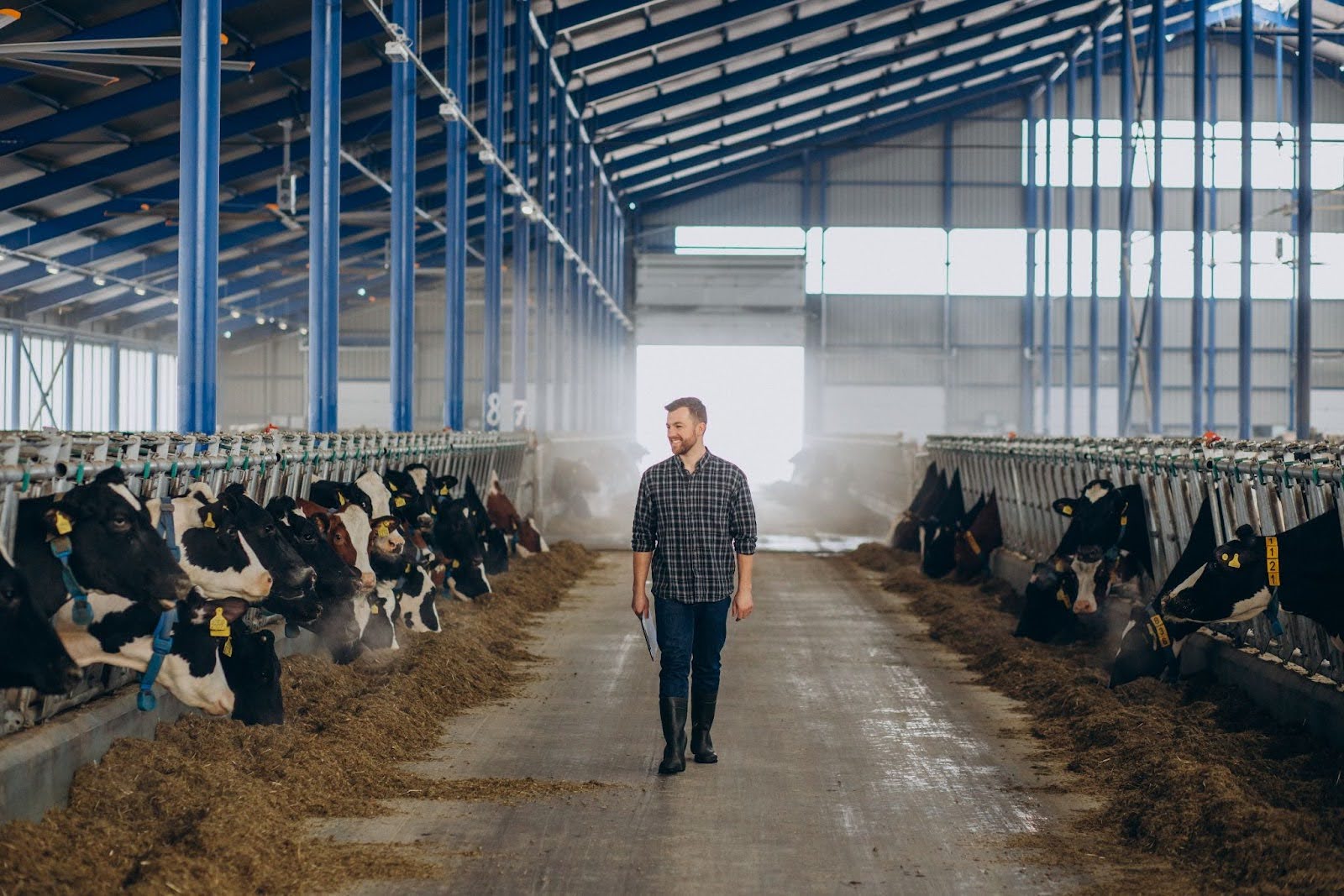Consistent routines are essential in the maintenance of a dairy farm, but setting it right is more important. Flooring is one of the most underrated and significant components of a well-operating dairy farm. It faces animal traffic, water, feed waste, and cleaning reagents regularly. Therefore, the proper selection of flooring in dairy farms is very significant in ensuring hygiene and overall efficiency in your operation.
When constructing a new barn or updating the previous one, the flooring will also directly impact the health of your animals, workers, and long-term productivity.
1. Healthier Animals with Clean Floors
Easy-to-clean surfaces are the first step toward good hygiene. Old concrete or damaged floors get chipped, and uneven surfaces retain moisture and germs; thus, it is more difficult to maintain barns that are clean and safe. This accumulation may, over time, pose a risk of infection within your herd, such as mastitis and other diseases related to hooves.
Flooring for dairy farms should be sealed with concrete or any porous material, such as resins. It will not give the opportunity for waste or bacteria to rest. They are simpler to hose down and disinfect fully, keeping your barns in a cleaner condition. However, reducing the number of bacteria keeps your livestock healthier, improves milk quality, and improves your bank account, resulting in a win-win all the way around.
2. Faster Cleaning with Less Effort
One of the most important assets on a farm is time. Unclean floors are difficult to clean; thus, it takes more labor and effort. However, cleanable, sealed, smooth floors with good drainage allow you to mop up fast and well. You have less time to spend scrubbing hard-to-remove stains or laboring under rough surfaces and more time to concentrate on more important things.
Many modern flooring options for dairy farms are designed with efficiency in mind. They often include sloped surfaces to guide waste and water toward drains, reducing the need for constant manual cleanup. It resulted in less mess, faster cleaning, and more time to manage other areas of your operation.
3. Long-Term Durability with Fewer
Early wearing of floors causes ceaseless maintenance, health hazards, and delays. The holes, cracks, and surface damage provide an avenue through which moisture can get in. Further, it renders cleaning less productive in the long run.
Farm-worthy floor systems are constructed to handle large volumes of traffic and loads, hoofed animals, and chemical exposure. They last longer and also withstand the hygienic surface after daily pressure. With fewer repairs, there are fewer inconveniences to your farm, and you have more time to run your farm successfully.
4. Better Workflow and Animal Comfort
When barns are clean, dry, and easy to move through, everything runs more efficiently. Cows stay calmer, milking routines go faster, and workers can move through spaces with ease. Floors that support this kind of workflow increase productivity without compromising hygiene.
Comfort also matters. Soft flooring materials or rubber mats, when used in specific areas, reduce joint stress for cows and encourage them to lie down more, which is directly linked to better milk production and cow well-being.




